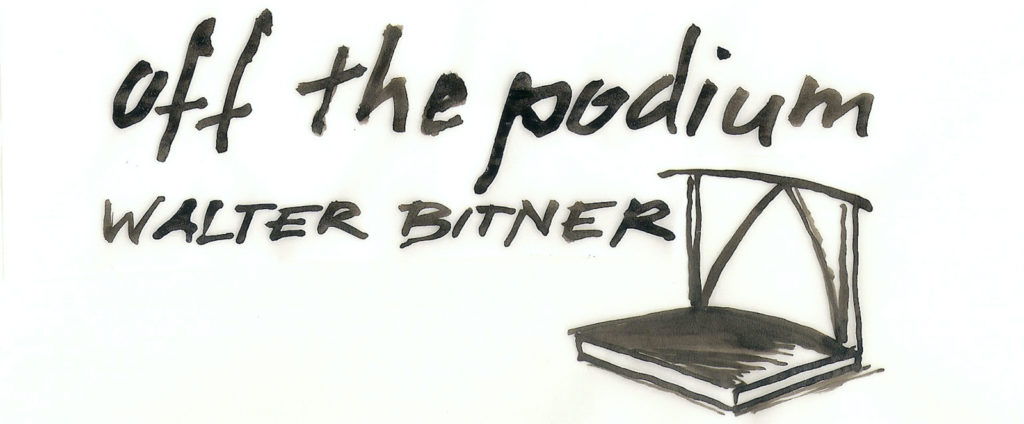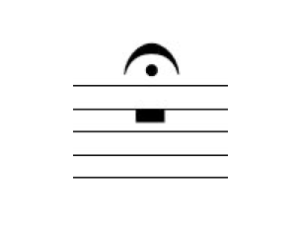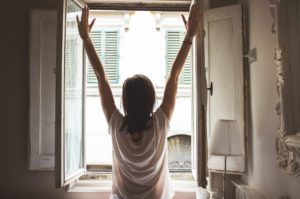
These are uncertain times. The current COVID-19 pandemic has disrupted everyone’s lives, and we are facing a period of time in which much of what we did regularly – our daily and weekly routines – has been impacted.
 For choral singers and choral directors, this means the cancelation of classes, rehearsals, performances, services, and the other activities of our lives that involve gathering together to make music. These social activities now on hiatus are in many cases the reason we got into this work – making music with others is a kind of lifeline, a way to connect with not only others and the world, but with the deepest, internal parts of ourselves.
For choral singers and choral directors, this means the cancelation of classes, rehearsals, performances, services, and the other activities of our lives that involve gathering together to make music. These social activities now on hiatus are in many cases the reason we got into this work – making music with others is a kind of lifeline, a way to connect with not only others and the world, but with the deepest, internal parts of ourselves.
Nevertheless. Directors and teachers have many responsibilities outside the classroom or rehearsal, and administrative duties, while necessary, already take us away from the lifeline of musical activity. It would be easy to understand if these changes in routine, the loss of our regular social musical activities, and the demands on us to create alternative strategies to navigate the weeks and months ahead eclipsed our daily practice of engagement in musical activity at all.
Follow all prudent recommendations for taking care of yourself and your loved ones, practice social distancing and follow CDC guidelines for appropriate hygiene. But if at all possible, find some way to continue to make music for yourself – by yourself if necessary – every day.
Music is in large part a social art, and choral music in particular may be the most social form of musical expression. Being denied the opportunity to sing with others for the time being, it would be easy for many of us to simply stop making music at all.
Listening to recordings is not a substitute for this. Set aside some time each day to simply make music – to do it. Ultimately, it doesn’t matter how – making music in some way every day will help you maintain equilibrium and preserve your lifeline. If you are in the habit of spending time every day making music and suddenly cease completely, it will not be long before you begin to feel out of balance.
If you play an instrument – and many or even most choral directors do – then make time every day to spend time playing it. Make time to sit at the piano, organ, or harpsichord; take out your violin, cello, guitar (lute, in my case) etc. and play, every day. Even a half hour spent this way each day will go a long way, but if possible spend an hour or more and really dig into something. Spend time with choral repertoire you are rehearsing with your choirs for performance, or with music you are considering for the future. Choose a piece you have wanted to learn and make a project of it, or play through old favorites.
I urge you to spend enough time engaged in making music each day so that for a little while, at least, your thoughts, your feelings, and your physical body are completely immersed in it – in other words, give this effort your wholehearted attention.
If you don’t have an instrumental practice strong enough to support you in making music by yourself every day, then sing. Go into a room by yourself and sing every day for a half hour or more – do what you can to set aside all concerns and for a brief respite, simply immerse yourself in the activity of making music.
This concentration – this immersion – in music-making has sustained you through so much of your life already – don’t give up on it now, even if music-making as a social activity is taken away for a time.
And one more thing: stretch, every day.
 Yes, stretch. If you are like me (and I know you are) you begin each rehearsal with some stretching and vocal warmups. I was a school choral director for decades and began every rehearsal this way – usually several times each day. When I left teaching to become a symphony administrator several years ago, it took me a while to realize that I needed to continue this stretching routine I had practiced in my choir rehearsals – perhaps even more than I did when I was on my feet every day leading rehearsals. Now I do this stretching routine religiously every morning, and often again in the afternoon or evening. It truly makes a positive difference in how I feel.
Yes, stretch. If you are like me (and I know you are) you begin each rehearsal with some stretching and vocal warmups. I was a school choral director for decades and began every rehearsal this way – usually several times each day. When I left teaching to become a symphony administrator several years ago, it took me a while to realize that I needed to continue this stretching routine I had practiced in my choir rehearsals – perhaps even more than I did when I was on my feet every day leading rehearsals. Now I do this stretching routine religiously every morning, and often again in the afternoon or evening. It truly makes a positive difference in how I feel.
And it will for you too.
©2020 Walter Bitner
Walter Bitner is a multi-instrumentalist, singer, conductor, and teacher, and serves as Director of Education & Community Engagement for the Richmond Symphony in Richmond, Virginia. His column Off The Podium is featured in Choral Director magazine, and he writes about music and education on his website Off The Podium at walterbitner.com.



Cherie Ploof says
Great article! Thank you! Music is my light! I miss my high school choir kids, but we will be linking in about a week, with some online classes and maybe even be able to rehearse.
Theresa Cieminski says
Thank you! This situation is very sad and has brought tears to my eyes for many reasons. Being reminded that music has always brought me through some dark times to light is appreciated. Music is our power. Thank you again!